The BUS Educational Philosophy
The educational philosophy of Baltimore Urban Studies (BUS) is rooted in the integration of Christ-centered spiritual formation and academically robust global community health learning. While specific student learning objectives include multidisciplinary aspects of Bible classes, spiritual formations class, and health science courses, all courses are guided by four general principles of the BUS educational philosophy: (1) Experiential Learning, (2) Implicit BiasAwareness and Anti-Racism Learning, (3) Transformational Learning, and (4)Redemptive Reconciliation.
Experiential Learning Theory
Experiential Learning Theory (ELT) (Jacobson, 1996) is based in the constructivist theoretical framework emphasizing the importance of the context in situated cognition, learning, and development of new understanding. ELT focuses on the role of reason operating within the situational, sensory, environmental, and applied context of learning (LeBaronet al., 2019). The BUS curriculum utilizes ELT to guide undergraduate students in practice of self-reflection in fieldwork through their urban public health internships.
Implicit Bias Awareness and Anti-Racism Learning
Bias involves both the hidden cognitive patterns (implicit bias) and the revealed social practices (explicit bias) that contradict the value of equality of all people (Gooden, 2015). Implicit bias isa spectrum of unconscious and conscious ideologies ranging from stereotypes regarding urban communities and includes racial colorblindness, cultural prejudice, and in some cases a belief in racial superiority. Racial bias is not the same as racism, and it is most often a hidden and unknown ideology (Patton & Jordan, 2017).Anti-racism learning requires reflection, consistent and equitable choices against prejudice and racism (Iseminger 2020). The faculty, programs, and curricula of the BUS will guide students to grow in prayerful self-reflection, implicit bias perception, and spiritual formation.
Transformational Learning
Salisbury and Pascarella (2013) describe transformational learning as consisting of three types of learning: (a) content knowledge:the facts, theories, and principles specific to one or more fields of study;(b) applied knowledge: the skills that come from applying content knowledge to practice; and (c) integrative knowledge: the internalization of learning that comes from putting knowledge from distinct experiences together for a specific purpose in a new context. The BUS curriculum is designed to facilitate academic and spiritual transformational learning.
Redemptive Reconciliation
Cultural and ethnic identities are developed through a complex process of assertion, assignment, and identification by self and external group interactions to build collectively an understanding of social identity theory (SIT) (Fujita, Harrigan, & Soutar,2018). Coursework and programs of the BUS are designed for undergraduate students with intentional training to become practitioners of socioeconomic and racial reconciliation. BUS holds toDr. Brenda Salter-McNeal’s definition of racial reconciliation: “Racial reconciliation is the ongoing spiritual process that requires forgiveness, repentance, and justice that restores broken relationships and systems to reflect God’s original intention for all creation to flourish.” The faculty, programs, and curriculum of BUSwill guide, equip, and mentor students along the journey of growing to become agents of reconciliation.
